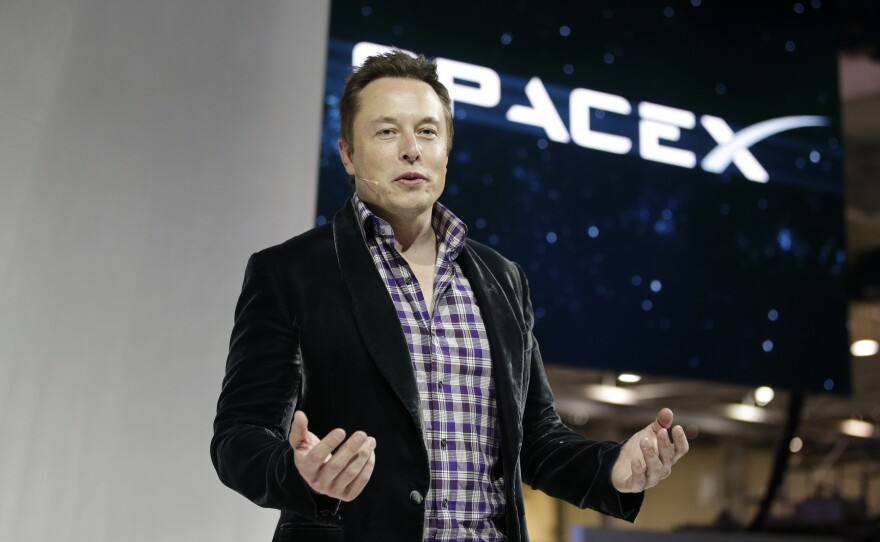Google's massive investment in SpaceX gives the tech giant another avenue for its goal of proving Internet access to remote parts of the Earth, and it gives Elon Musk's company money to continue its research on space transport, re-usability and satellite manufacturing.
In a statement Tuesday, Space Exploration Technologies said Google and Fidelity had together invested $1 billion, giving them just under a 10 percent share in the company. It also boosts SpaceX's valuation to $10 billion.
Google and Fidelity join existing SpaceX investors Founders Fund, Draper Fisher Jurvetson, Valor Equity Partners and Capricorn.
Bloomberg explains the deal:
"By teaming up with SpaceX, Google would be seeking to gain an edge over rivals such as Facebook Inc., which is working on projects to deliver Internet service to underserved regions by building drones, satellites and lasers. WorldVu Satellites Ltd., backed by Qualcomm Inc. and Virgin Group, has begun a similar effort."
Spreading the Internet to remote parts of the world is one of Google's stated goals. As part of this effort, it officially launched Project Loon in 2013. Under that plan, the project's balloons float in the stratosphere, forming a network that would allow people to connect to the Internet on their phones and other devices. Last year, Google bought Skybox Imagining, a company trying to build a network of microsatellites, for $500 billion.
Musk has said SpaceX's ultimate goal is to build a settlement on Mars, but for now the company launches satellites for NASA and others. In an interview with BusinessWeek last week, Musk said he wants to build a network of communication satellites to orbit Earth and offer Internet across the world.
The Wall Street Journal lists some hurdles the deal faces:
"One big technical and financial challenge facing the proposed venture is the cost installing ground-based antennas and computer terminals to receive the satellite signals. That issue has bedeviled some earlier Internet-via-satellite projects and threatens to complicate Google's efforts, satellite industry officials and consultants say.
"Another unanswered question is how SpaceX plans to transmit Internet signals to Earth. The company isn't believed to control rights to radio spectrum."
Copyright 2015 NPR. To see more, visit http://www.npr.org/.






